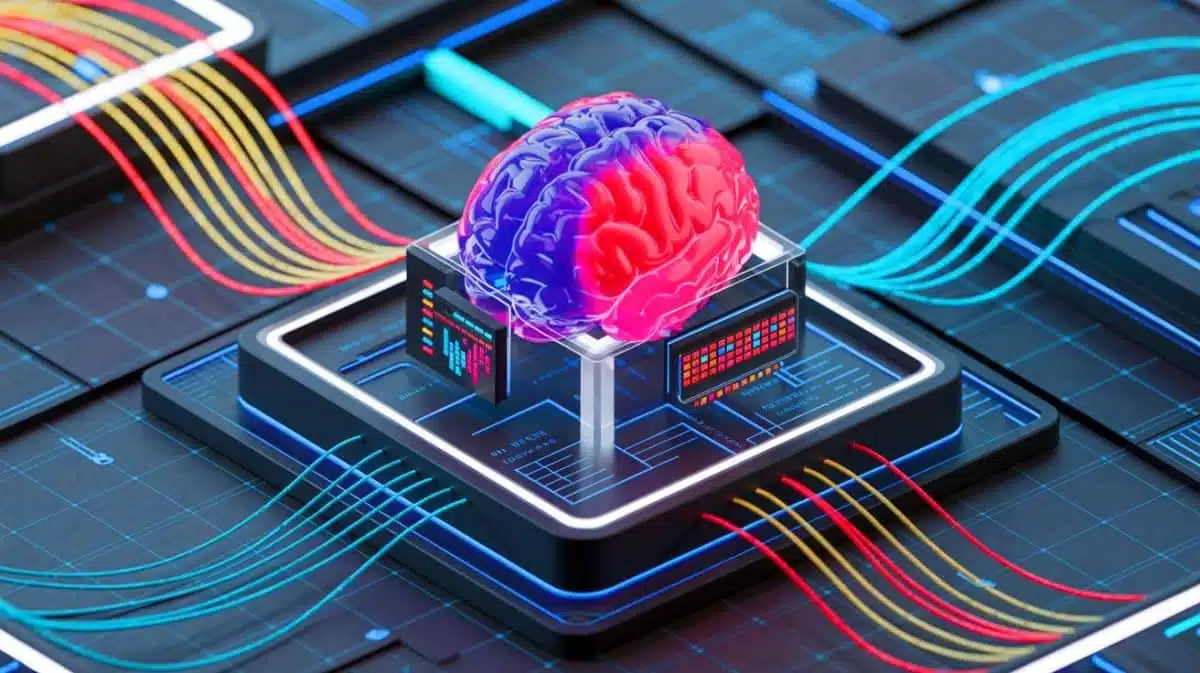| IN A NUTSHELL |
|
In recent years, the field of artificial intelligence (AI) has made extraordinary strides, with systems becoming increasingly sophisticated. A recent study published in “Nature Machine Intelligence” reveals that AI models like ChatGPT are processing information in ways that closely mirror human thought processes. This groundbreaking research, conducted by the Chinese Academy of Sciences and the South China University of Technology, highlights the potential and the challenges of developing AI that can think like humans. Understanding this development is crucial as it raises questions about the future of AI and its role in society.
The Study’s Key Findings
The Chinese researchers aimed to explore whether large language models (LLMs) such as ChatGPT could develop humanlike object representations from linguistic and multimodal data. Their findings provide compelling evidence that AI systems share fundamental similarities with human conceptual knowledge. Although not identical, these similarities reveal that AI can categorize and process information in a way that reflects human cognitive patterns.
Using a series of “odd-one-out” trials, where AI models were tasked with identifying the item that doesn’t belong in a set, researchers found that the systems created a staggering 66 conceptual dimensions to sort the objects. This remarkable ability to categorize is a testament to the advanced nature of these AI systems, although the researchers point out that AI’s understanding of significance or emotional value is still uncertain.
Implications for Human Interaction
The study’s findings have significant implications for how AI might collaborate with humans in the future. As AI systems develop more humanlike cognitive abilities, there is potential for more seamless integration into human activities. This could lead to AI being used more effectively in fields such as healthcare, education, and customer service, where understanding human emotions and responses is crucial.
However, this development also brings challenges. The potential for AI to make decisions based on humanlike thought processes raises ethical concerns. It is crucial to ensure that AI systems are designed with safeguards to prevent misuse and to protect user privacy. As AI continues to evolve, the balance between leveraging its capabilities and ensuring ethical use will be a key consideration for developers and policymakers alike.
Limitations and Challenges
Despite the promising findings, the study also highlights the limitations of current AI systems. While language-based LLMs have shown proficiency in certain tasks, they struggle with others that require deeper levels of human cognition, such as analogical thinking. Additionally, the AI’s ability to categorize visual aspects, such as shape or spatial properties, remains limited.
These limitations underscore the ongoing need for research and development in AI. Understanding and addressing these challenges will be crucial in advancing AI systems that can truly mimic human thought processes. The researchers hope that their findings will pave the way for the development of more sophisticated AI systems that can collaborate effectively with humans, enhancing productivity and innovation across various sectors.
The Future of AI and Human Society
The potential for AI to develop humanlike cognitive abilities opens up a world of possibilities for its integration into society. From enhancing decision-making processes to providing personalized services, the applications of advanced AI are vast. However, it is essential to approach this future with caution.
As AI systems become more integrated into our daily lives, questions about their impact on employment, privacy, and security will become increasingly relevant. Policymakers and developers must work together to create frameworks that ensure the responsible use of AI, balancing innovation with ethical considerations. As we stand on the brink of this new era in AI development, the question remains: How will we shape the future of AI to benefit humanity while safeguarding our values and rights?
Did you like it? 4.6/5 (22)








Wow, AI is getting too smart! Should we be worried about this development? 🤔
This is fascinating! Can anyone explain what “analogical thinking” means in simpler terms?
Great article! It’s amazing how quickly AI is evolving. Thanks for sharing. 😊
Are we heading towards a future where AI replaces human jobs? Scary thought! 😱
I think the potential for AI-human collaboration is huge, especially in healthcare. Excited to see what happens next!
Does this mean AI can eventually feel emotions? That would be mind-blowing!
Thank you for this insightful piece. It’s important to keep discussing the ethical implications of AI.